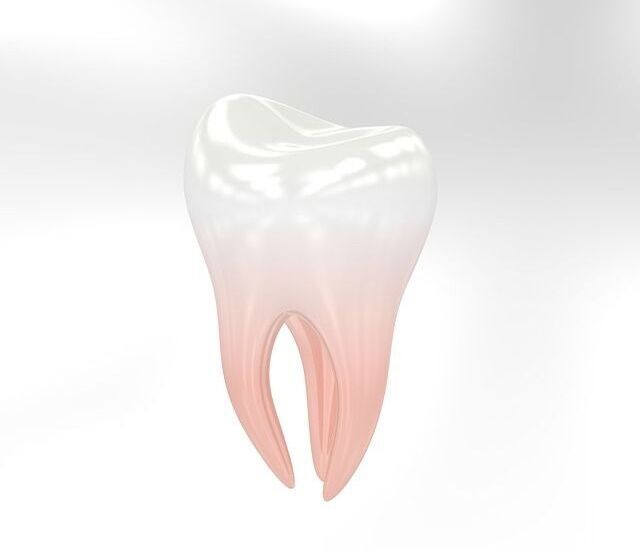
Emergency dental appointment for sensitive teeth
Do you experience sharp shooting pain in your teeth when you eat an ice-cream? Does the thought of sipping a cup of hot tea remind of you the throbbing pain in your mouth? If you experience a sharp, shooting pain in your teeth on the consumption of hot, cold, sweet or foods and liquids, you may have sensitive teeth.

How to identify teeth sensitivity
Tooth pain that occurs after cold or hot food and liquid consumption can be a dental cavity symptom. However, it is also possible to experience excruciating pain because of such stimulus even if there is no apparent cavity; this is known as tooth sensitivity or dentinal hypersensitivity. Tooth sensitivity is an exaggerated response of the tooth nerves to hot, cold, sweet and sour stimuli. Tooth sensitivity can affect one tooth or several teeth in your oral cavity.
This sensitivity is a condition that affects 1 out of 4 adults worldwide. It can be frustrating not to know the cause of your pain and that’s where our excellent dental professionals can come to your rescue and formulate a treatment plan exclusively for you.

Causes of teeth sensitivity
Some of us may naturally have more sensitive teeth than others. There are, however, specific reasons that can cause increased teeth sensitivity. A tooth consists of three layers; the outermost layer is the enamel, which protects the tooth. The middle layer of the teeth is dentine with nerve endings, and the innermost region consists of the dental pulp. The dental pulp consists of blood vessels and nerves responsible for its sensations. Once the enamel is damaged due to alterations of everyday activity, it exposes the nerves. These exposed nerves are responsible for tooth sensitivity.
Enamel can be worn down due to various reasons:
- Using a hard toothbrush and brushing your teeth vigorously makes the enamel porous.
- Teeth grinding, clenching, and bruxism habits can also lead to the wearing down of enamel.
- Consumption of acidic foods and beverages like carbonated drinks and alcohol.
- Systemic disorders and conditions can also affect the status of your teeth. Diseases like Gastrointestinal reflux disorder (GERD) causes acid to come up from the stomach to the esophagus. It makes the enamel porous and susceptible to tooth sensitivity.
- Gum recession as a result of gum diseases.
- Tooth decay, chipped, fractured teeth can lead to tooth sensitivity.
- A broken filling can also leave the nerves exposed.
- Some dental procedures, like teeth whitening procedure can also lead to sensitive teeth.
Whatever may be the cause of your teeth sensitivity, our experienced dentists and specialists have treatments to relieve the symptoms of sensitive teeth.

Symptoms of teeth sensitivity
Symptoms of teeth sensitivity vary with each individual. The degree of tooth pain can vary in severity and duration in individual cases.
- You may experience spontaneous stabbing tooth pain that starts without any cause. The pain of tooth sensitivity starts to rise when you eat something like ice cream or sip a cup of hot tea. Even eating sweet or sour foods can cause excruciating stabbing pain in your teeth.
- The tooth pain can be localized to one tooth or can involve all teeth.
- There will be a pain in biting or chewing down.
- You may notice your gums receding.
- There might be pus discharge which can be an indication of dental abscess and is a dental emergency.
- Jaw pain.
- Dental decay.
Treatment for sensitive teeth
There are various ways to manage tooth sensitivity depending upon the cause. Our specialist dentists may suggest one or a combination of multiple approaches to address teeth sensitivity.
1) MEDICATED TOOTHPASTE
Dentists at our clinic in London may prescribe a special toothpaste containing potassium nitrate. These toothpastes are created to provide relief to individuals suffering from teeth sensitivity as they desensitize your teeth’ nerves.
2) FLUORIDE TREATMENT
Fluoride strengthens your enamel structure, making it resistant to attack by acid. Prescription-strength fluoride toothpaste and mouthwash will help lower the pain associated with teeth sensitivity.
3) BRUSHING HABITS
Using a softer toothbrush is essential to protect the integrity of enamel. Using a soft-bristled brush in a gentle motion is recommended.
5) FOOD HABITS
Avoiding any form of carbonated drinks to prevent further damage to the enamel. Eliminating acidic foods and beverages is vital. Cutting down sugary drinks will also help lower the chances of getting teeth sensitivity.
4) TREATMENT OF UNDERLYING CONDITIONS
Treating underlying systemic conditions like GERD is the key to preventing further damage to the tooth’s enamel.
6) DENTAL PROCEDURES
If there are dental cavities, they might be the reason for pain. At our clinic in London, we might suggest you opt for composite filling procedures for permanent relief. Getting a dental crown on severely damaged teeth may also be considered. Dental veneers can also shield the tooth and protect it from the adversities of the oral environment. Application of dental varnishes may also help. Root canal treatment can be advised to treat root infections and draining abscesses if they cause tooth sensitivity. Mouthguards may be suggested if the cause of tooth sensitivity is bruxism.
If you are experiencing any symptoms of teeth sensitivity or have any dental problems, please schedule an appointment with us at one of our 4 clinics in London to consult our excellent board-certified dentists.
